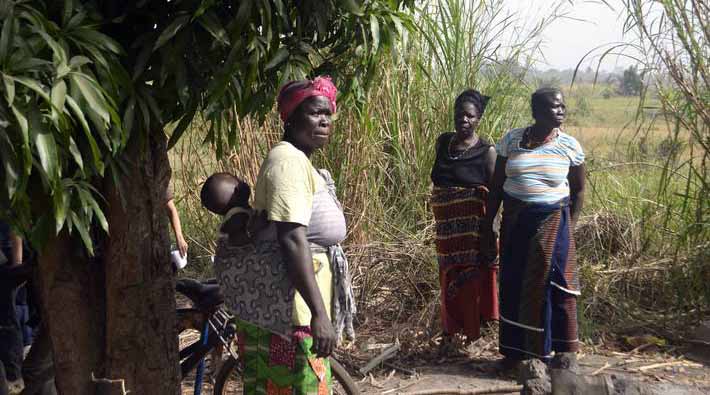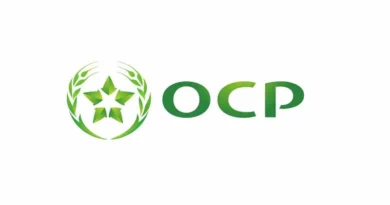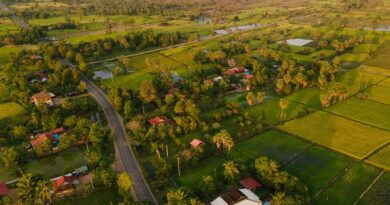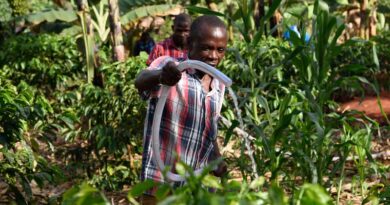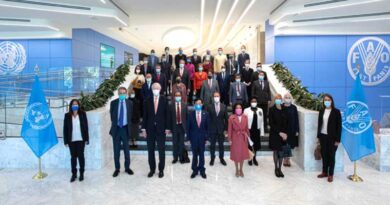Green Climate Fund approves new projects
21 August 2020, Rome: The Board of the Green Climate Fund today approved several new projects, including one for Côte d’Ivoire that marks the first time the Food and Agriculture Organization of the United Nations has helped an African country obtain a grant from the international entity.
Read: Bangladesh prepares for possible locust invasion
Along with the $11.8 million approval for Côte d’Ivoire, other two FAO-led projects in Armenia and Colombia, for a total amount of $58.5 million, including $10.5 million in cofinancing, received approval from the Green Climate Fund, a unique global platform mandated to invest in low-emission and climate-resilient development.
“These approvals show that FAO is a strong partner for Members looking to meet their climate goals with inclusive rural growth strategies,” said Maria Helena Semedo, FAO Deputy Director-General, Climate and Natural Resources. “Africa has a lot of need, and a lot of potential, in this area, so we commend the Green Climate Fund for approving that project and look forward to helping implement it.”
Côte d’Ivoire
The funds will help Côte d’Ivoire’s Promire project – Promoting zero-deforestation cocoa production for reducing emissions in Côte d’Ivoire -upscale a pilot project which supported a local cooperative of organic cocoa producers in La Mé amplify their access to fair-trade markets while reducing loss of forest cover.
Read: FACT’s imported second MOP shipment (27000 MT) for the kharif season
The enlarged project will implement low-carbon emission agroforestry practices on 3 650 hectares in a way designed to nudge changes by and for the benefit of 600 000 smallholder farmers in the southeastern regions around Agnéby-Tiassa, La Mé and Sud-Comoé.
Côte d’Ivoire has one of the world’s fastest rates of forest loss and almost no pristine forest remains outside its national parks.
Agriculture contributes to almost two-thirds of the deforestation, with a third due to cocoa production – exacerbated by land clearing to grow “full-sun” cocoa, a strategy favoured by unorganized smallholders who often lack secure land tenure, rather than “shaded” cocoa which is associated with lower short-term yields but is better for biodiversity, water management and environment sustainability.
On the ground, the project also focuses on diversified use of farmland beyond cash crops to include food crops – such as plantain and cassava – and renew coffee plantations as well as the planting of trees with other uses. Partnerships will be sought with investors who are increasing their commitment to sustainability, not least as the larger cocoa business sector risks sharp output reductions from the world’s largest cocoa producing country if climate change is not addressed.
Read: Jacto enters new market segment of seeding, autonomous spraying and sugarcane harvesting
This approval marks the first time a REDD+ project is approved in Africa and globally under the Fund’s Simplified Approval Process (SAP). The new project is expected to reduce carbon emissions by 5.5 million tCO2 equivalent over a 20-year span, making a significant contribution to the country’s Nationally Determined Contribution pledge to reduce its GHG emissions by 28 percent by 2030. That goal is linked to an ambitious REDD+ mechanism which the government has committed to implement with the technical assistance of FAO.
Armenia
The Green Climate Fund Board approved a $10 million grant for a project on rural green growth and forest resilience focused on 207 rural communities in Lori Marz and Syunik Marz.
Read: FMC Collaborates with Zymergen for Breakthrough Crop Protection Technologies
Activities range from provision of energy-efficient fuel-wood stoves – expected to reduce wood consumption by 30 percent and reduce energy poverty in forest areas – to a broad tree-planting programme that will also increase the forest cover of the country increasing carbon removals from forests by at least 7 percent.
Finally, the project will create new job opportunities for rural households and reduce indoor air polluting increasing the overall resilience of rural households to external shocks. The project is also being financed by the Austrian Development Agency, the Autonomous Province of Bolzano (Italy), the Government of Armenia and WWF- Armenia.
Colombia
In Colombia, the Green Climate Fund is offering $28 million to help finance the existing REDD+ programme, which led to 31.5 million tCO2 equivalent of carbon mitigation in 2015 and 2016. In lieu of active carbon markets, the Fund is making a payment for some of the results achieved.
Read: Bayer Names Sara Boettiger as Head of Global Public Affairs, Science and Sustainability
By utilising funds received through the results based payments scheme, the project will foster green economic growth and development and will enhance the sustainable and inclusive governance of natural resources. The proceeds will be primarily invested in projects involving indigenous peoples and community-based forestry initiatives.
Addressing climate change is a cornerstone of FAO’s work, as effective climate action across the agricultural sectors will promote livelihood resilience and reduce poverty for vulnerable rural communities while conserving the environment and biodiversity.
Last month, FAO Director-General QU Dongyu and Yannick Glemarec, Executive Director of the Green Climate Fund, met to discuss ways to further expand collaboration in the wake of the COVID-19 crisis.

